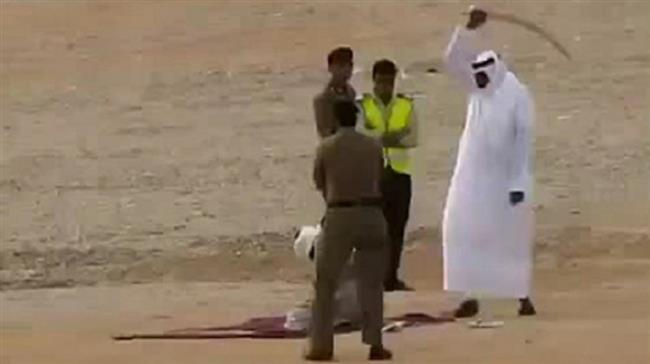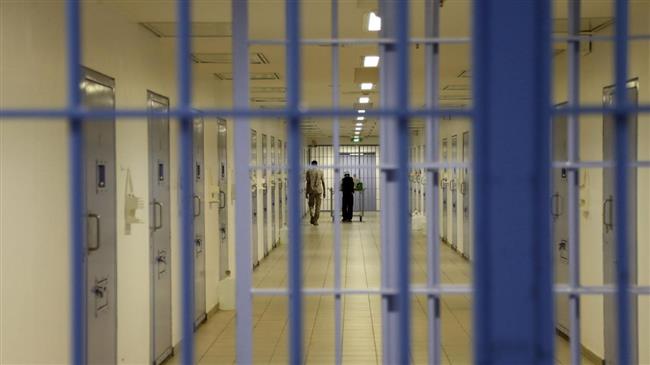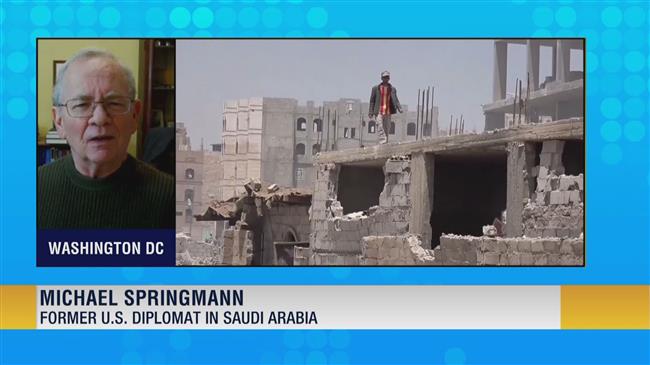Mass execution is Saudis tool to crush Shia minority: Amnesty
Saudi Arabia's Interior Ministry says it has executed 37 people in a single day “in connection with terrorism crimes,” as a crackdown led by Crown Prince Mohammed bin Salman against pro-democracy campaigners, human rights activists and intellectuals widens in the kingdom.
The Arabic-language Saudi Arabian daily newspaper Okaz, citing a statement issued by the ministry, the death penalty was implemented Tuesday “on a number of culprits for adopting extremist terrorist ideologies and forming terrorist cells to corrupt and disrupt security as well as spread chaos and provoke sectarian strife.”
The statement added that the executions took place in the capital Riyadh, the Muslim holy cities of Mecca and Medina, the central province of Qassim, oil-rich and Shia-populated Eastern Province and the kingdom’s southern province of Asir. The convicts were all Saudi nationals.
The official Saudi Press Agency (SPA) also said that one of the condemned was crucified after the execution.
Meanwhile, the Arabic-language Ahrar television network, in a post published on its official Twitter page, reported that imprisoned Shia activists were among those executed by Saudi authorities.
🔴 النظام السعودي الإرهابي يقتل عدداً من المعتقلين الشيعة.
— قناة أحرار (@QanatAhrar) April 23, 2019
Death penalty used as tool to crush Shia minority
The execution marks an alarming escalation in Saudi Arabia’s use of the death penalty, said Amnesty International on Tuesday, noting that among those put to death was a young shia man, identified as Abdulkareem al-Hawaj, who was convicted of offenses related to his involvement in anti-government protests that took place while he was under the age of 16.
“Today’s mass execution is a chilling demonstration of the Saudi Arabian authorities callous disregard for human life. It is also yet another gruesome indication of how the death penalty is being used as a political tool to crush dissent from within the country’s Shia minority,” said Lynn Maalouf, the Middle East Research Director at Amnesty International.
“The use of the death penalty is always appalling but it is even more shocking when it is applied after unfair trials or against people who were under 18 at the time of the crime, in flagrant violation of international law,” Maalouf added.
Under international law, the use of the death penalty against people who were under the age of 18 at the time of the crime is strictly prohibited.
“Instead of stepping up executions at an alarming rate in the name of countering terrorism, Saudi Arabia’s must halt this bloody execution spree immediately and establish an official moratorium on executions as a first step towards abolishing the death penalty completely,” said Maalouf.
Earlier this month, Amnesty International warned that Saudi Arabia is making use of the death penalty to crush opposition figures.
The London-based rights group said Saudi Arabia’s public prosecutor was seeking the death penalty for more people, noting that prominent preacher Sheikh Salman al-Awdah was one of those targeted for execution.
The Prisoners of Conscience, which is an independent non-governmental organization advocating human rights in Saudi Arabia, also announced in a post on its official Twitter page that Awdah, along with two other clerics, identified as Awad al-Qarni and Ali al-Omari, had been in prison for 19 months with no legal reasons.
The activists were detained in a sweeping crackdown weeks before Saudi Arabia overturned the world's only ban on female motorists on June 24, 2018. The women had staunchly advocated for the right to drive.
Over the past years, Riyadh has redefined its anti-terrorism laws to target activism.
Tuesday’s mass execution was Saudi Arabia's largest in the past three years. In January 2016, Saudi authorities executed Shia cleric Sheikh Nimr Baqir al-Nimr, who was an outspoken critic of the Riyadh regime, along with 46 other men on terrorism charges. Nimr had been arrested in Qatif, Eastern Province, in 2012.
Saudi Arabia has stepped up politically-motivated arrests, prosecution and conviction of peaceful dissident writers and human rights campaigners.
Saudi officials have also intensified crackdown in the country's Shia-populated Eastern Province.
Eastern Province has been the scene of peaceful demonstrations since February 2011. Protesters have been demanding reforms, freedom of expression, the release of political prisoners, and an end to economic and religious discrimination against the oil-rich region.
The protests have been met with a heavy-handed crackdown by the regime, with regime forces increasing security measures across the province.
Pezeshkian: Iran determined to develop, boost ties with neighbors
VIDEO | Israel, Hamas ceasefire agreement: Closer than ever
VIDEO | Gaza ceasefire to be put in place under resistance conditions
Hot water and sewage: Palestinians share harrowing tales of torture in Israeli prisons
VIDEO | Thousands evacuated in Ethiopia amid earthquakes, volcanic eruption fears
Revealed: Israeli ministers eye restoration of illegal settlements in Gaza through genocide
How Los Angeles’ pistachio tycoons facilitated and profited from wildfires
Iraqi PM: Iran was in Syria to fight terrorism; presence requested by Damascus





















 This makes it easy to access the Press TV website
This makes it easy to access the Press TV website